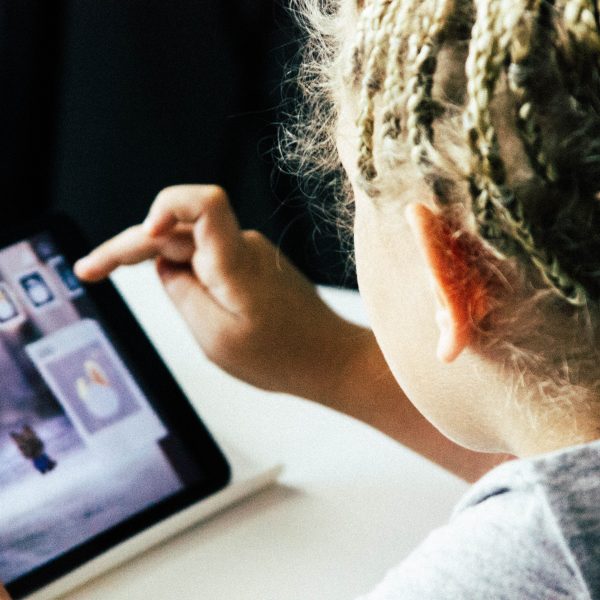Robots and tech R&D: the future of childcare, according to India
opinion
The views expressed by contributors are their own and not the view of The Sector.

The role of technology in educating and caring for children has been placed in the spotlight today, with moves by two ‘edutech’ companies in India to incorporate robotics, research and development, and a ‘plug in and play’ approach to the world of early childhood education and care (ECEC).
Learning in a box – the Flinto solution
Flinto Learning Solutions, based in Chennai, India, has reportedly launched the Flinto R&D centre, claimed to be “India’s first early learning-focused research and development centre”.
Flinto Learning Solutions is known in India for the supply of subscription-based toy boxes, sent to Indian families with the promise of “engrossing activities” that will “make your child give up the TV/smartphone”.
While Flintobox is billed as the flagship product for the company, Flinto Learning Solutions has reported that they will soon roll out a “unique digital edutainment platform for early learning and development”
In an interview with Business Television India, Mr Durairaj confirmed the core business of Flinto Learning Solutions as “creating content and tools for children aged between one and twelve” to fill the “market gap” of high-quality educational content developed for the Indian market.
During the same interview, Mr Durairaj also outlined the move by the company into a product FlintoClass, which is billed as a product with a 100 per cent success rate guaranteed with “the ultimate formula to double your preschool admissions”. FlintoClass claims to send “everything needed to run a preschool packed in a box, and shipped to the preschool month on month”, following an “award-winning curriculum” inspired by the best of Waldorf, John Dewey, Multiple Intelligence Theories and Play-way learning systems.
Additionally, FlintoClass claims to help educators, regardless of their experience or background, to deliver high-quality learning experiences to children, and to follow “a unique pay-per-child method helping owners and edupreneurs get profit easily (sic)”.
Interacting with children? There’s an app (and a robot) for that
The Flinto range of offerings comes at a time when technological solutions are increasingly being offered to time poor Indian parents, with one such solution coming from emotix, an “advanced robotics company focused at (sic) solving grave consumer problems by creating emotionally intelligent solutions”.
Founded in 2015, the first product line for emotix is the Miko series of robots which “target an unmet need of today’s parents, who seek a positive and trusted gateway of technology that caters to the learning and development needs of children”.
The Miko robots have a range of features, such as dual-noise cancellation microphones, to “learn” the voice of a child, estimate the direction of the child using beamforming, and then “turn around and have a conversation with (the) child”.
Makers of the Miko robots say that Miko 2 attempts to understand the child’s emotions through camera and voice technology, which then processes the input through emotix’s proprietary emotional intelligence engine.
In addition to providing ‘emotional support’ for a child, the makers of the Miko robot claim it can support children to revise educational concepts, saying “The curriculum syllabus developed by our acclaimed knowledge partners, coupled with conversational learning through Miko 2 truly ensures [the] academic development of the child.”
The Miko robot is billed as a tool that can educate children, understand their emotions, play games and narrate stories. In the updated version of Miko, parents can direct the robot through an app, with makers appealing to time poor parents by asking “Missing out on important milestones in your child’s life? Want to track your child’s progress while you are away at work? TeleConnect with your child through Miko 2! Yes, you can have a video call and remotely control your Miko 2 from work to talk to your child.”
Emotix has claimed to have an “extremely positive response” to the robots from the Indian market, and now plan to bring their solutions to “verticals like childcare, elderly (sic) care and many more” by 2023.
Where to from here?
What are your thoughts? Can robots replace quality early childhood educators, and actively involved parents? How do the developments outlined above fit with your understanding about the Rights of the Child, or pedagogical practice? Let us know in the comments below.
Popular

Policy
Practice
Quality
Provider
Research
Safety starts with supervision: responding to real risks in ECEC
2025-07-07 10:30:58
by Fiona Alston

Policy
Provider
Practice
Quality
Jay Weatherill appointed to co-lead urgent review into childcare safety in Victoria
2025-07-07 07:24:04
by Fiona Alston

Quality
Practice
Provider
Workforce
Reclaiming Joy: Why connection, curiosity and care still matter in early childhood education
2025-07-09 10:00:07
by Fiona Alston













